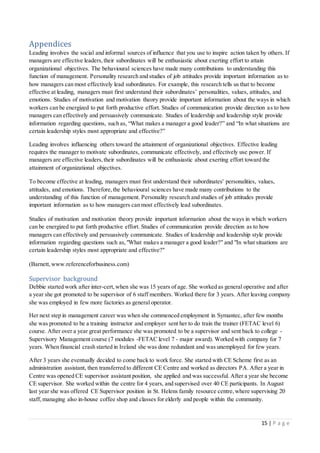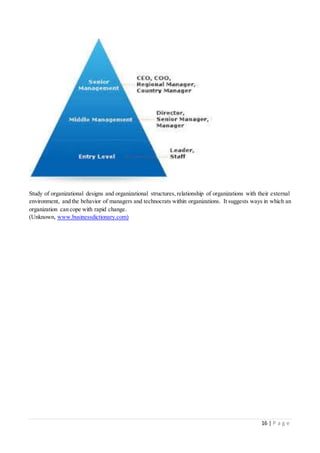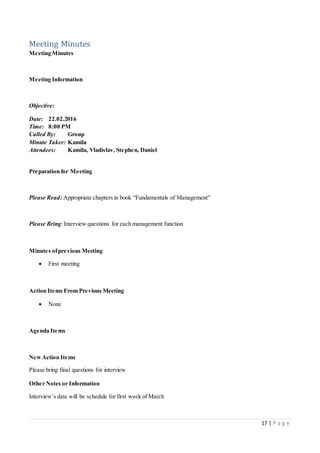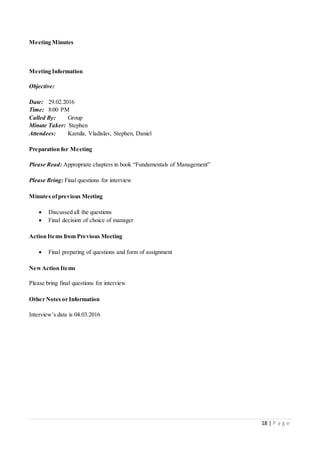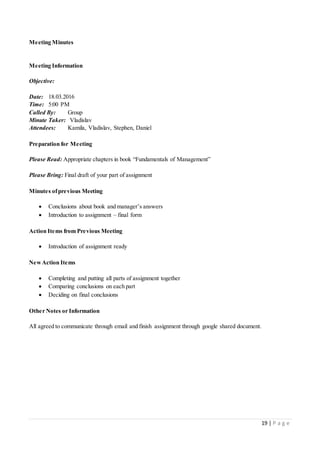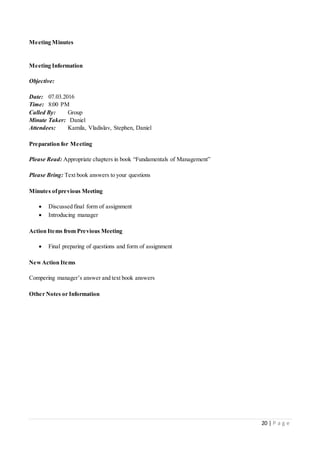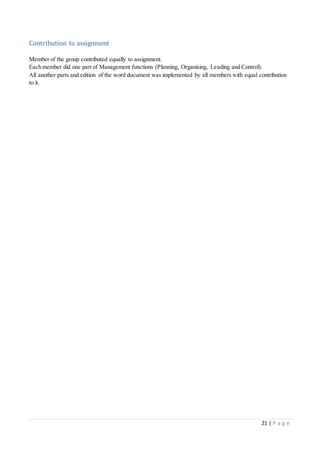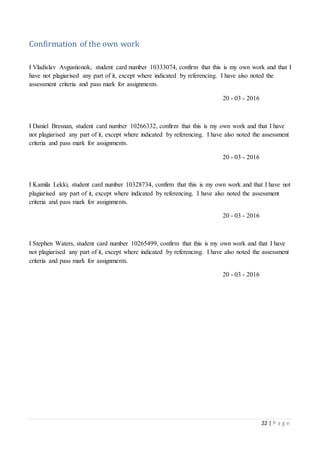This document summarizes an interview conducted with Debbie, a supervisor/manager at a family resource center, about the management functions of planning, organizing, leading, and controlling. Debbie implements a planning process to set goals and schedule upcoming events. She has also planned her career progression by completing management courses. While funding from the government is a barrier, Debbie has asked for additional funding to improve services and staff training. Overall, the interview showed that planning is important for an organization to have direction and focus its resources, though external factors can influence achieving objectives.
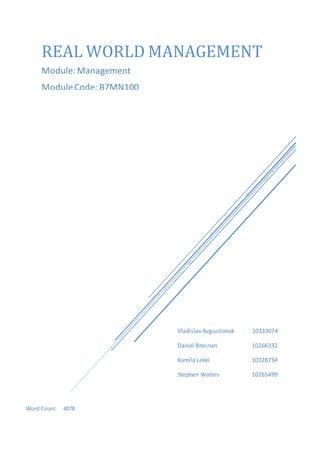
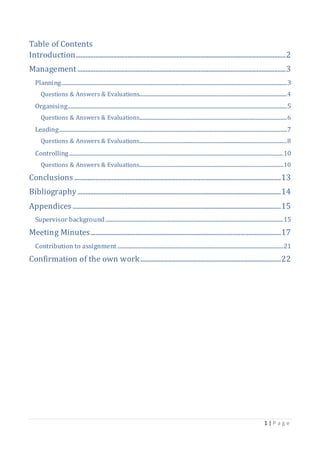
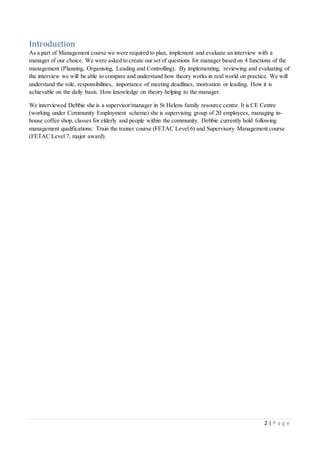
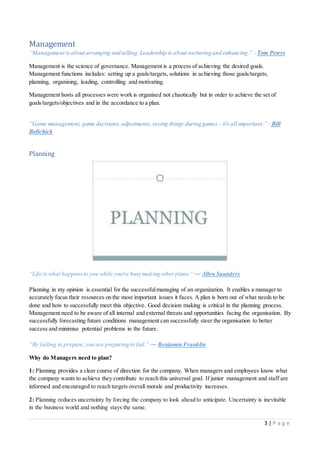
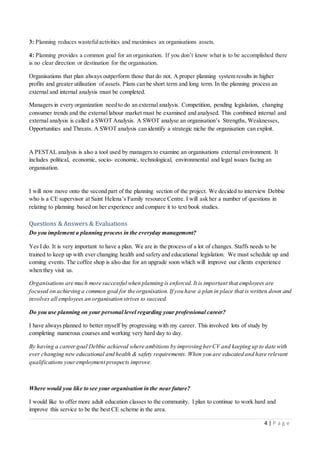
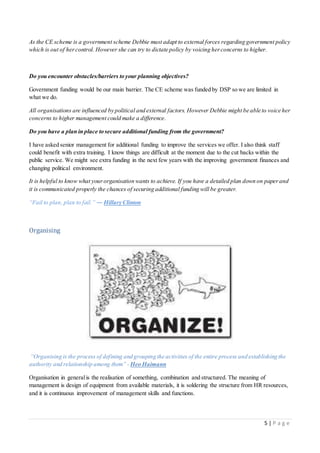
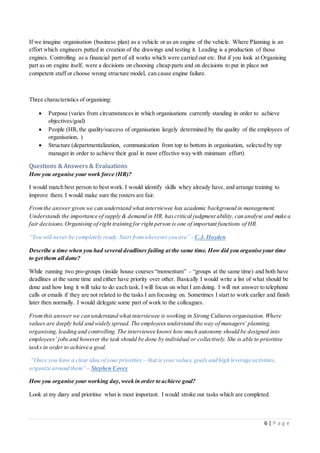
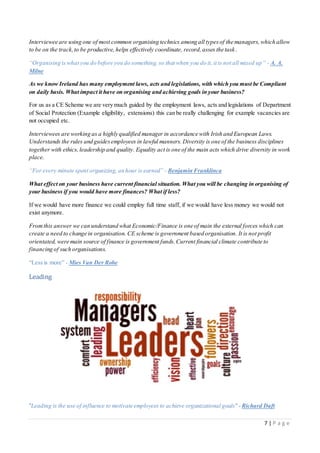
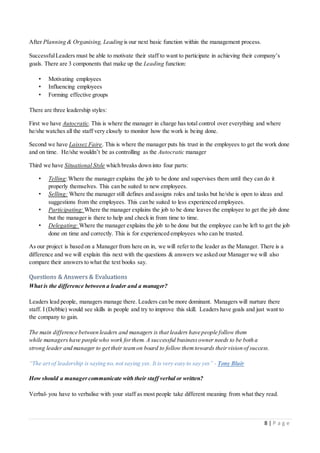
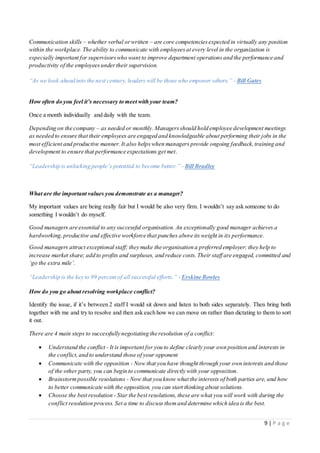
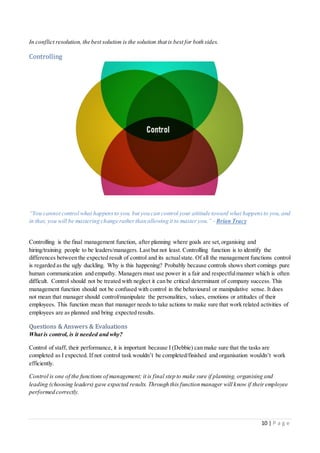
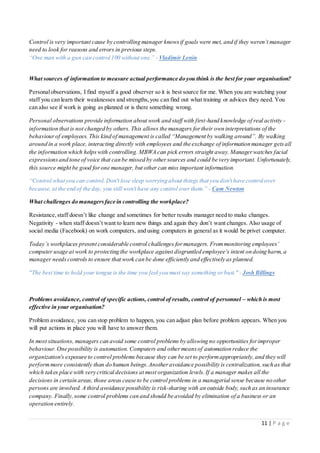
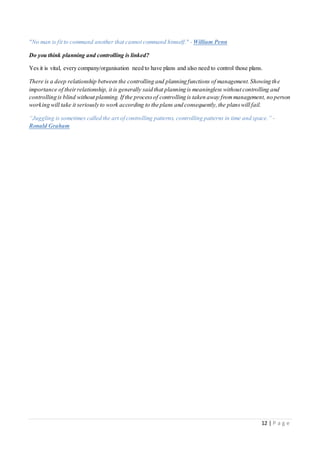
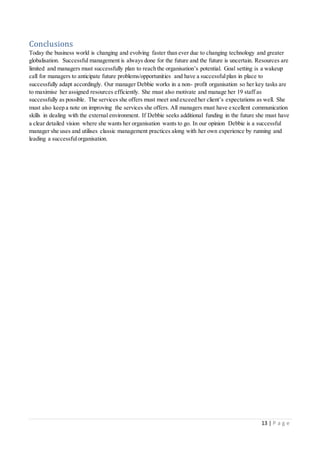
![14 | P a g e
Bibliography
Robbins, S.P.,DeCenzo, D.A. and Coulter, M. (2015) Fundamentals of Management: Essential Concepts and
Applications, 9th
Edition (Global Edition), USA: Courier Kendalville
Robbins, S.P.,DeCenzo, D.A. and Coulter, M., Anderson, I. (2013) Fundamentals of Management, 7th
Edition
(Canadian Edition), Toronto: Pearson
Dublin Business School Management Module Guide 2015/2016
Merchant, K.A.,1982 ‘The Control Function of Management’, Summer 1982, 15 July. Available at:
http://sloanreview.mit.edu/article/the-control-function-of-management/7. [12 March 2016]
Pujari, S., ‘What is the Relationship Between Planning and Controlling?’ Business. Available at:
http://www.yourarticlelibrary.com/business/what-is-the-relationship-between-planning-and-controlling/1028/.
[12 March 2016]
Unknown, ‘Control Quotes’,Available at: http://www.brainyquote.com/quotes/keywords/control.html. [09
March 2016]
Unknown, ‘Control & Power Quotes’,Motivational Quotes. Available at:
http://www.motivatingquotes.com/control.htm. [15 March 2016]
Admin, 2015 ‘Hierarchy of management’, Management, 29 December. Available at:
http://obeyfuture.com/index.php/2015/12/29/hierarchy-of-management/. [14 March 2016]
Unknown, ‘Planning, Organizing, Leading, and Controlling’, Flatworld knowledge. Available at:
http://www.flatworldknowledge.com/pub/1.0/princpls-mgmt-and-org-behavior/pom-introduction-principles-
ma/planning-organizing-leading-an/3029. [16 March 2016]
Barnett, T.,‘Management Functions’, Encyclopaedia of Management. Available at:
http://www.referenceforbusiness.com/management/Log-Mar/Management-Functions.html#ixzz3yAah7LTF.
[10 March 2016]
Unknown, ‘Organization Theory’, Inc. Available at: http://www.inc.com/encyclopedia/organization-
theory.html. [14 March 2016]
Unknown, ‘Organization theory’, Definition. Available at:
http://www.businessdictionary.com/definition/organization-theory.html#ixzz43SwnFZfi [13 March 2016]](https://image.slidesharecdn.com/5e68b4df-4c1b-4645-974d-82e3d00c1034-160322140715/85/Management-assignment-10265499-15-320.jpg)
